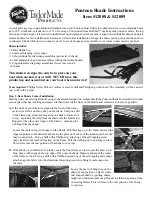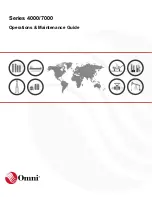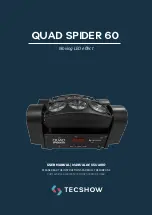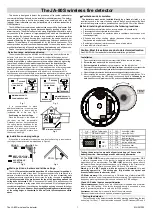
7
4) Electrodes must not be applied to sites that might cause current/stimulation to flow
through the carotid sinus region (anterior neck) or transcerebrally (through the head).
5) Do not use this device if the patient has a demand-type cardiac pacemaker or any
imnplanted defibrillator,
6) This device should not be used over poorly innervated areas.
7) Epilepsy
8) Serious arterial circulatory problems in the lower limbs
9) Abdominal or inguinal hernia
10) Do not use this device if you have heart disease without consulting your physician.
1.5. Warnings,Cautions, and Adverse Reactions
WARNINGS:
1)
This device should he used only under the continued supervision of a licensed
physician.
2)
The long-term effects of chronic electrical stimulation are unknown. Electrical
stimulation devices do not have any curative value.
3) TENS is a symptomatic treatment and, as such, suppresses the sensation of pain,
which would otherwise serve as a protective mechanism.
4) Safety has not been established for the use of therapeutic electrical stimulation
during pregnancy. Do not use during pregnancy unless directed by your physician.
5) Electrical stimulation is not effective for pain of central origin.
6) Electronic monitoring equipment (such as ECG monitors) may not operate properly
when electrical stimulation is in use.
7) Stimulation should not be applied over the carotid sinus nerves, particularly in
patients with a known sensitivity to the carotid sinus reflex.
8) Stimulation should not be applied over the neck or mouth: Severe spasm of the
laryngeal and pharyngeal muscles may occur and the contractions may be strong
enough to close the airway or cause difficulty in breathing.
9) Stimulation should not be applied transthoracically . The introduction of electrical
current into the heart may cause cardiac arrhythmias.








































